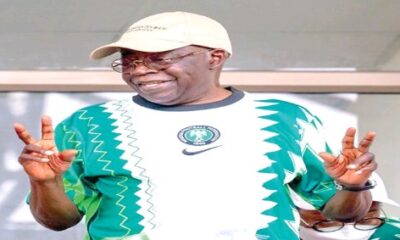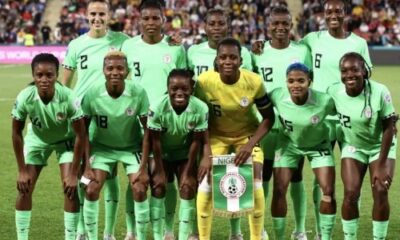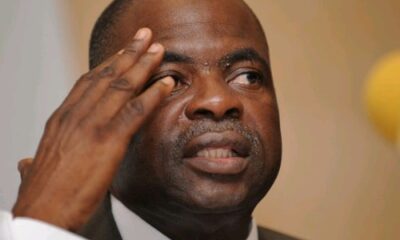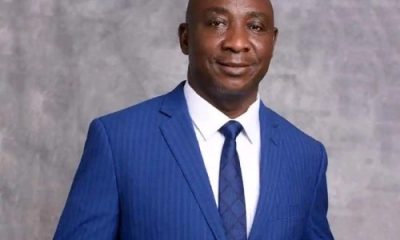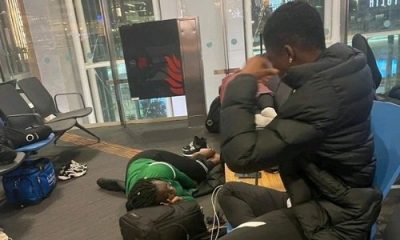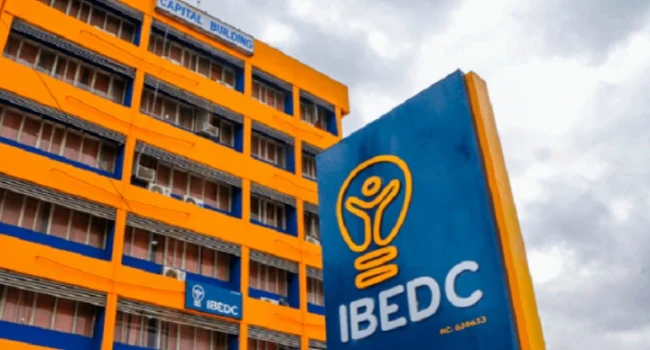Some details of the contract agreement between the Nigeria Football Federation (NFF) and the newly announced Head Coach of the Super Eagles have been obtained by PREMIUM TIMES.
Though the NFF issued a press statement on Sunday announcing it had settled for the 62-year-old, the federation was silent on the details of the contract agreement with the Portuguese manager.
However, PREMIUM TIMES has reliably gathered some of the inside details of Peseiro’s contract.
It was gathered the new Super Eagles Head Coach will receive $70,000 monthly (over N29m) from which he would pay his two incoming personal assistants.
PREMIUM TIMES also learnt that the NFF is signing just a year’s deal with Peseiro with an option for another year depending on how things turn out in the initial 12 months.
Among other clauses in his contract, Peseiro is expected to watch 60 percent of domestic league games as he has been mandated to discover homegrown talents for the national team.
Cheapest option
While a handful of other coaches were also shortlisted for the Super Eagles job, Peseiro, in the end, turned out to be the cheapest option.
Sources familiar with the NFF’s recruitment process said other coaches that could have been hired for the national team were either not affordable or not available for the job.
“A number of other coaches were also contacted but it is either the salary they were asking for was too high or they were not even favorably disposed to a national team job at the moment,” a source at the NFF told PREMIUM TIMES
“Peseiro turned out to be the cheapest option for the NFF and that was why they settled for him.”
This is the second time the NFF is announcing Peseiro as the coach for Nigeria having hurriedly done the same on the eve of the Africa Cup of Nations tournament in Cameroon.
Then, it was announced that the Portuguese will be an observer while Austin Eguavoen will be solely in charge of the Eagles at the continental tournament.
The ‘appointment’ of Peseiro by the NFF was, then, contained in a communique issued after the NFF’s executive council meeting held on December 29, 2021.
PREMIUM TIMES had then highlighted five important things to know about the new Super Eagles coach including the fact that he would be the first Portuguese manager to manage the national team.
However, a few weeks after, Peseiro revealed that talks to handle the three-time African champions collapsed due to financial queries and clauses in the proposed contract.
CV
José Vitor dos Santos Peseiro, 62, is a Portuguese who played as a striker in his days and has wide and varied experience coaching clubs and national teams across four different continents: Europe, Asia, Africa, and South America.
An educationist with a degree in physical education/sports sciences, Peseiro has top-level coaching qualifications/training and has coached at Sporting Lisbon, FC Porto, Panathinaikos, and Rapid Bucharest.
He also had stints at Sporting Braga, Victoria Guimaraes, Al-Hilal, Al-Wahda, Al-Ahly Cairo, Sharjah FC, and Real Madrid, as well as serving as Head Coach of the Saudi Arabia and Venezuela national teams.
Though well-traveled and with vast experience, Peseiro appears to have more sack letters than trophies but it would be out of place to outrightly conclude he will not succeed with the three-time African champions, Nigeria,
From Panathinaikos to FC Porto to Braga and even Saudi Arabia, there has hardly ever been any happy ending wherever he has found himself.
That said, the Portuguese tactician has some notable moments winning silverware, with the last being the league title with Al-Ahly.
He is saddled with rebuilding the Nigeria team to a formidable one and his first outing will be leading the Super Eagles for the upcoming tour of the United States of America.
There, the three-time African champions will slug it out with Mexico and Ecuador ‘A’ Teams in prestige friendlies.
Credit: Premium Times

 BIG STORY1 day ago
BIG STORY1 day ago
 BIG STORY3 days ago
BIG STORY3 days ago
 BIG STORY3 days ago
BIG STORY3 days ago
 BIG STORY16 hours ago
BIG STORY16 hours ago
 BIG STORY1 day ago
BIG STORY1 day ago
 BIG STORY3 days ago
BIG STORY3 days ago
 BIG STORY3 days ago
BIG STORY3 days ago
 BIG STORY1 day ago
BIG STORY1 day ago









